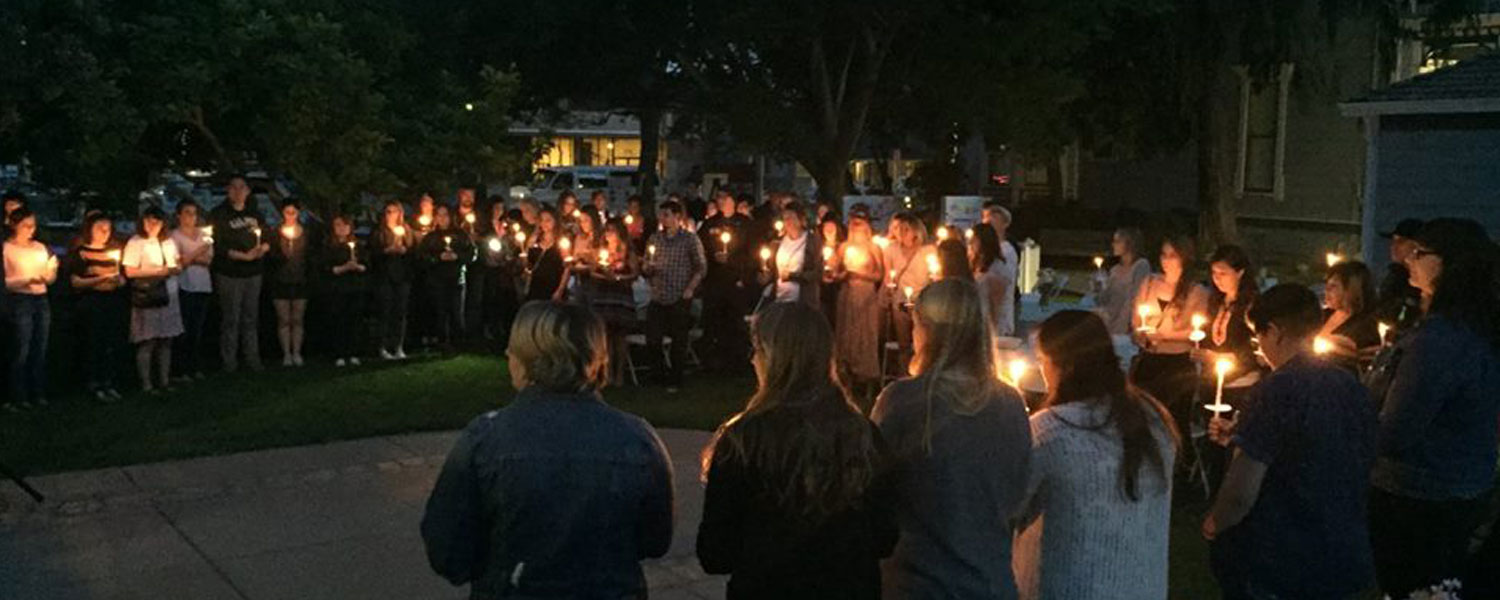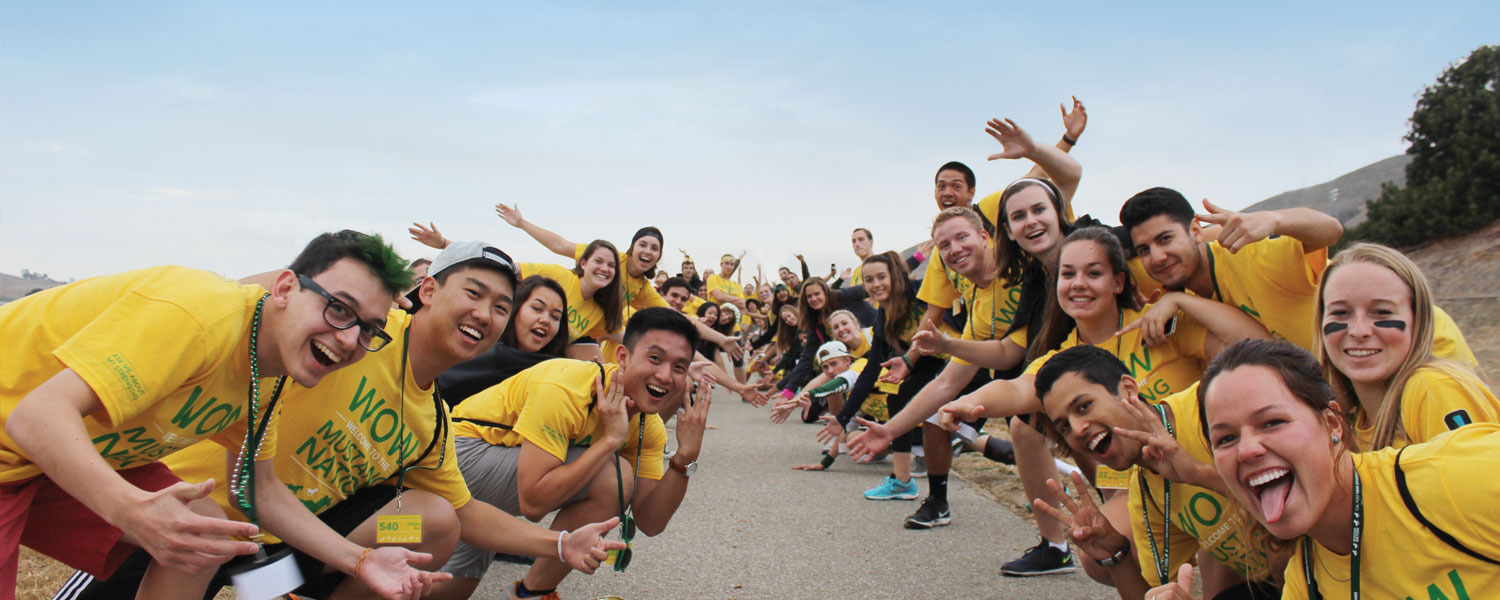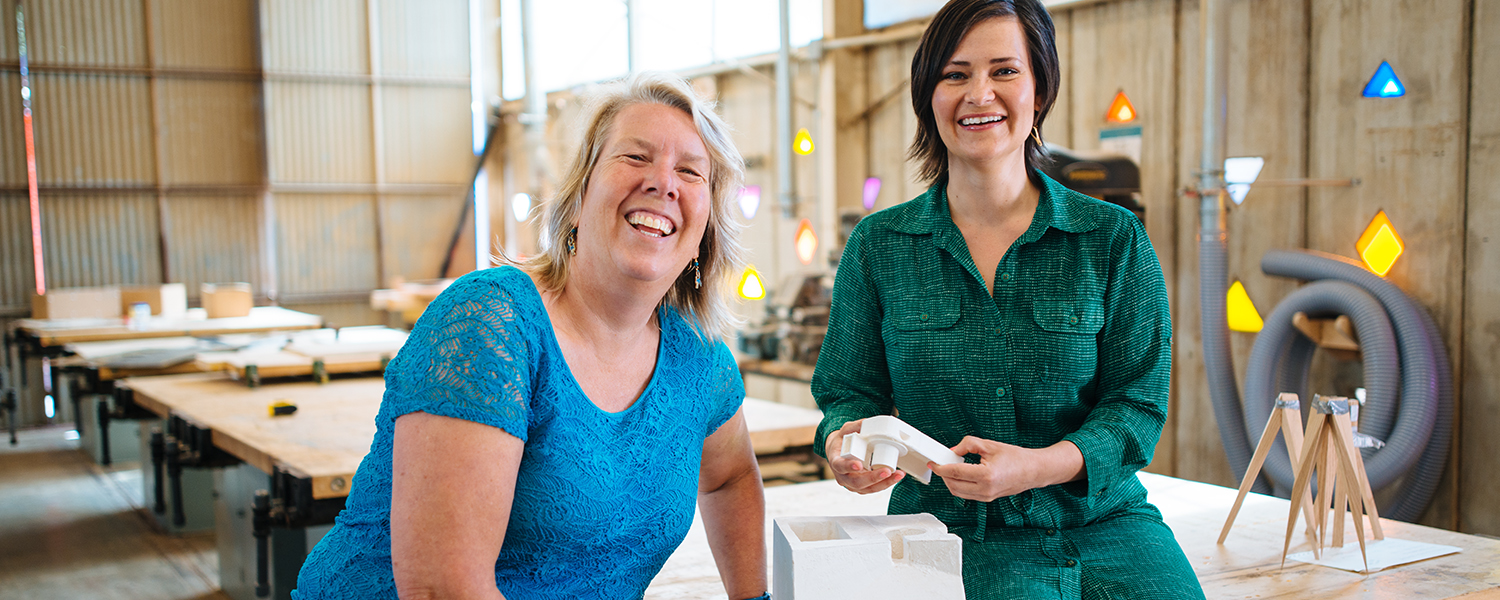CAL POLY NEWS
Modeling a Safer Campus

Sometimes good news is hard to recognize at first. Last year Cal Poly students reported more than 160 incidents of sexual misconduct to Safer, the university’s sexual assault prevention program. That number is more than triple the reports made during 2012-13. But for experts at Safer, that increase is an indication that the situation is getting better, not worse.
“We have spent years working directly with students, faculty and staff to change the stigma around sexual assault,” says Christina Kaviani, former Safer coordinator and now interim assistant director of the Cross Cultural Centers. “Students are not as afraid anymore to talk about this issue.”
Preventing sexual assaults has been a top priority for higher education officials across the nation in recent years. Cal Poly has had systems and resources in place for survivors since 1999, but in 2014 the CSU system mandated that all campuses systemwide offer advocacy, confidential survivor support, respondent support and mandatory education, and broaden the scope of services to also cover dating violence, domestic violence and stalking.
Safer has hosted hundreds of workshops and trainings to educate and empower students, department staff and faculty to be aware of these issues and to seek support. Faculty and staff are now trained to be more aware of signs of sexual assault in order to be better prepared to refer students to support services.
“As people have gained that knowledge, their confidence to speak up for themselves and others has become more evident,” says Kaviani. “Safer hopes that students, faculty and staff know they have a confidential resource to provide options for healing.”
Because of these efforts, Cal Poly students today are now more aware of their sexual rights than ever before. All students undergo sexual assault prevention training prior to coming in as freshmen and returning students complete online training every year. Additional training is required for Greek life members, student athletes, clubs and organizations, and dorm resident assistants.
Legislative and higher education leaders have taken note of the university’s leadership on this issue. “Cal Poly has been ahead of the curve and really has a state-of-the-art system,” said Dawn Theodora, an attorney with the CSU specializing in Title IX issues who also serves as university counsel for Cal Poly. “It was one of the first campuses to establish a sexual assault advocacy office well before it was required.”
But being ahead of the curve on sexual assault prevention and support services is not enough. “Cal Poly is not and cannot be complacent,” says Kaviani. “We can be the model. We have the passion, we have incredible students, and we have the power to make waves around the CSU and beyond.”





